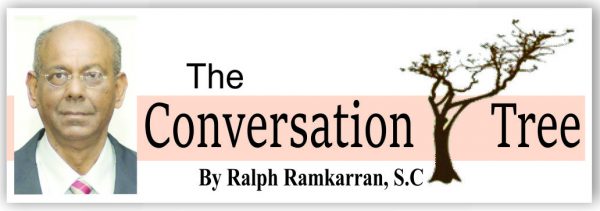 In a lengthy article, “Countries at the Crossroads 2011: Guyana,” written for “Freedom House” before the general elections of that year, Assistant Professor Joan Mars, of the Department of Sociology, Anthropology and Criminal Justice of the University of Michigan-Flint, said: “Elections are constitutionally due to be held in 2011. Calls by the political opposition for shared governance have not been endorsed by the ruling PPP/C administration headed by President Jagdeo; with its consistent absolute majority in parliament, the PPP/C has had little incentive to agree to share power, but the idea may be gathering momentum as a major rallying point in the forthcoming elections.“ Assistant Professor Mars, a former practising lawyer in Guyana, concluded: “The current system of majority rule should be reformed to provide for a power-sharing model that is representative of the ethnic diversity in the population. This would reduce the adverse effects of racial voting and promote minority inclusion in governance.” This conclusion is shared by many in Guyana, and by a long- suffering electorate, whose sentiments are exploited by the main political parties when they periodically declare their support for shared or inclusive governance, especially at election time, and when they see political advantage in it.
In a lengthy article, “Countries at the Crossroads 2011: Guyana,” written for “Freedom House” before the general elections of that year, Assistant Professor Joan Mars, of the Department of Sociology, Anthropology and Criminal Justice of the University of Michigan-Flint, said: “Elections are constitutionally due to be held in 2011. Calls by the political opposition for shared governance have not been endorsed by the ruling PPP/C administration headed by President Jagdeo; with its consistent absolute majority in parliament, the PPP/C has had little incentive to agree to share power, but the idea may be gathering momentum as a major rallying point in the forthcoming elections.“ Assistant Professor Mars, a former practising lawyer in Guyana, concluded: “The current system of majority rule should be reformed to provide for a power-sharing model that is representative of the ethnic diversity in the population. This would reduce the adverse effects of racial voting and promote minority inclusion in governance.” This conclusion is shared by many in Guyana, and by a long- suffering electorate, whose sentiments are exploited by the main political parties when they periodically declare their support for shared or inclusive governance, especially at election time, and when they see political advantage in it.
The election results of 2011 are well known. The PPP/C was not returned with an absolute majority for the first time since 1992, but with a plurality of 32 votes over 33 for the combined Opposition. With unimaginative inflexibility, the minority PPP/C Government, true to the culture of securing dominance, did not even discuss internally the issue of a coalition arrangement with one or both of the opposition parties. It was entitled to form a minority government and did so. As expected with minority governments everywhere in the world, but perhaps not by the PPP/C, the Government fell after three years of political turmoil.
